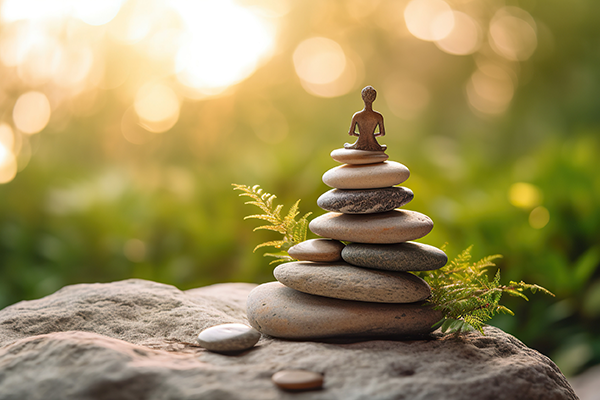stress
The Enigma Of Your Soul Contract
 Before we come into this lifetime, we design a soul contract. We choose a family that we want to be born to and we plan specific things that we want to accomplish, such as career, relationships, children, and so on. The contract is about our spiritual self and therefore also includes those things that we need to overcome and learn from.
Before we come into this lifetime, we design a soul contract. We choose a family that we want to be born to and we plan specific things that we want to accomplish, such as career, relationships, children, and so on. The contract is about our spiritual self and therefore also includes those things that we need to overcome and learn from.
Some of the more important things in your contract may come as a surprise, because often they are those things you do not want to do! This is usually a sure way of knowing that something is contractual. The things we prefer to do, or have done, we’ve already mastered, but the challenges and obstacles offer us opportunity to overcome our fears and anxieties, to step forward and learn more, to grow spiritually.
Some contracts are also much longer than others. Some of us remain here for a long time, while others do not. I doubt anyone knows for sure, but for the time that we are here, we must make every effort to learn and grow from every life experience.
This is also why some of us attract the wrong people, and constantly get into the wrong relationships? In these cases it is often your soul contract trying to teach you to speak up for yourself and claim your self-worth.
When old souls come in, usually nothing bothers them. They tend to take things with a grain of salt. However, when new souls come in, they are often very excited about so many things and can’t seem to get enough done.
There are also the creative souls, who are very talented, but also have a lot of emotional stress. Part of their contract is to learn to manage their stress better, so that they can be more open to their creative gifts. Continue reading
Small Gestures Of Kindness In A Time Of Cruelty
 Many people are feeling anxious or uncertain in recent years with everything that has been happening in the world.
Many people are feeling anxious or uncertain in recent years with everything that has been happening in the world.
Some are fearful and others stressed or unsure how to act appropriately in these restless times. Some even act out in destructive or dramatic ways, taking their frustration out on others.
It is common knowledge that the digital age and social media has spawned a generation of computer warriors and online bullies who express their insecurities and fears, in often extremely mean and cruel ways, from the comfort of their living rooms and basements.
This savage lack of empathy and decorum has seemingly now spilt over into our streets and neighborhoods too.
It is easier for many to be critical and judgmental, to complain and argue, instead of facing facts, dealing with the truth and seeking lasting solutions.
Often not knowing the entire story, many people choose to see only see one side of things, while telling others off for disagreeing with their limited point of view. The computer has unfortunately given some people a platform to spread strife and hatred, instead of love, hope and kindness.
I pray that more people will strive to seek the truth and learn to look for the good and kind in others. Showing tolerance, patience and kindness is always the better, more open approach. And always remember that if someone attacks you directly, then it often means they are somehow struggling or hurting. It usually serves no real purpose to attack them back. Continue reading
Spirit Is Always With You
 How do you connect with your inner guidance? You soul essence? Ponder this question for a moment. Then shut your eyes, breathe deeply three times… and ponder this question again.
How do you connect with your inner guidance? You soul essence? Ponder this question for a moment. Then shut your eyes, breathe deeply three times… and ponder this question again.
Spirit is always present within you. It does not take a time out to go get a coffee, or have a nap. Spirit simply is a part of you that never dies.
When you close your eyes and simply breathe, you will feel lighter. That is spirit trying to be more prominent than the ego.
Spirit never causes stress, discomfort, unease or negativity. Spirit is pure 100% unconditional love, and every person has this inside of them.
However, as you move forward in life, ego will always try to override spirit, whether in decision-making or choices that are important (or simple).
Ego can create discomfort, doubt, fear and the wrong type of attitude to live a spirit-filled, love-filled life.
How do you change these patterns? At least once a day, simply sit, breathe slowly, eyes closed, hands on lap. No parts of your body should be crossed, i.e. legs, arms or hands.
Now feel the essence of your true spirit flowing in your body and around your soul. Feel the essence of goodness that comes to you from this energy. Spirit will never make you feel down or negative. It will always be uplifting or at least instill a sense of calm or peace inside of you…even if only for the moment.
True Love Has No Time Limit, And No Deadline!
 We live in a busy world where most of us have gotten used to a very hurried life. Everything is on a strict schedule and time limit, because we now judge everything this way.
We live in a busy world where most of us have gotten used to a very hurried life. Everything is on a strict schedule and time limit, because we now judge everything this way.
We have become a restless society demanding instant solutions and immediate gratification in all things.
If the line is too long at the supermarket or fast food restaurant, some of us get upset. If we have to wait for our doctor when we have an appointment, we become annoyed. Some cut in front of others, or even cross streets while the light is still red, because they hate to wait.
Similarly, if we do not get an immediate reaction from our latest love interest, some of us do not become just a little restless or anxious. No, they get really upset!
If this kind of hurried, rushed way of life plagues you, then you may definitely need an major attitude adjustment. Because your naturally loving heart and your capacity for love and romance may be in serious trouble.
Maybe your heart never got the memo that there was no need to constantly hurry up and adhere to time limits and deadlines.
What happened to dating? Romantic chats? Patiently anticipated expressions of affection? Dozens of love letters, and more recently emails and test messages? The joint holidays and weekends away? The looking forward to new adventures together?
The Empowered Empath’s Guide To Spiritual Self-Care
 Empaths, sensitives and intuitives tend to be givers. Loyal, sometimes to a fault, and fiercely protective of those they care about… moving at lightning speed whenever called upon.
Empaths, sensitives and intuitives tend to be givers. Loyal, sometimes to a fault, and fiercely protective of those they care about… moving at lightning speed whenever called upon.
So, when I say to an empath that it may be time to put themselves first, the response is often mixed.
But, if putting yourself first seems too selfish or too difficult, try something simpler: at least put yourself on an equal footing with those you love and care for.
For many sensitive and highly intuitive people, self-care must be an acquired behavior… and it’s a big one. Empaths intend to be selfless, to help, heal and facilitate those they care about. Wonderful!
But remember, if this is your goal, then begin with yourself. The stronger, healthier and happier you are then the more effective, nurturing and supportive you can be to those around you.
Putting yourself first doesn’t mean that you are doing only what you want to do all the time, and it doesn’t mean that you are suddenly going to ignore those you care about.
What it does mean is making it a priority to take care of your own physical, mental, emotional and spiritual needs. This can be a tall order and quite the task for some empaths. Don’t wait until you are in a meltdown… frustrated and snapping at everything and everyone around you, with little or no provocation.
How To Navigate Change Without Losing Your Mind
 Life has a way of plunging us into change, often without much warning.
Life has a way of plunging us into change, often without much warning.
One day you realise something feels different. A chapter is ending, another is beginning, and you are somewhere in between.
These moments invite us to slow down, take a breath, and check in with ourselves, even if we do not yet know what comes next.
We all move through transitions differently. Some people feel comforted by plans, lists, and clear goals. Having a sense of direction helps them feel grounded.
Others find that kind of pressure exhausting. Being told they should have everything figured out can feel more stressful than supportive, especially when life already feels full.
I have always leaned toward the second group. The expectation to define the future too neatly has often left me feeling stuck rather than inspired. Over time, I have learned that change does not always need big decisions or bold declarations. Sometimes it asks for something much simpler.
For me, that often starts with pausing and noticing what has already happened. Taking a moment to feel grateful for what I have lived through can be surprisingly calming. The hard parts that shaped me, the small joys that kept me going, the people who showed up when I needed them.
You Are A Human Being, Not A Human Doing!
 We are living in a fast-paced world where we feel we must do many things every day, hardly having much time to just be. To just stop. To think. To just be.
We are living in a fast-paced world where we feel we must do many things every day, hardly having much time to just be. To just stop. To think. To just be.
Instead of embracing the fact that we are a human beings, we are in this day and age more focused on being humans doing.
We get caught in up in the web of life, with its chaos and drama. And we get frustrated and feel so rushed. There is no time to truly do the things we want to do; to spend time doing the things that matter the most.
Today, take a moment to just sit for a few minutes and simply do nothing.
Meditate. Just think about nothing and if thoughts come in, ask yourself: is this thought helping me to get in alignment with my true self? Am I in touch with the higher self that allows happiness to be a part of my space and life?
If the thoughts that are coming in are not happy or healthy, or not helping you to be spiritually aware and give you that feeling of being fulfilled, then you just allow them to go in and out. Just let it be.
No need to over think, or evaluate, or spend energy on it. Just let it go. If a thought comes in and it’s a stressor for you, note it and remember to maybe get rid of that thought or person from your life.